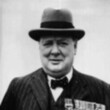Three days at the brink : FDR's daring gamble to win World War II
(Book)
940.53 BAIER
1 available
940.53 BAIER
1 available
Copies
| Location | Call Number | Status |
|---|---|---|
| Central - Adult Nonfiction | 940.53 BAIER | Available |
| Shirlington - Adult Nonfiction | 940.53 BAIER | Available |
Description
The Instant New York Times Bestseller
"I could not put this extraordinary book down. Three Days at the Brink is a masterpiece: elegantly written, brilliantly conceived, and impeccably researched. This book not only sparkles but is destined to be a classic!” —Jay Winik, bestselling author
From the #1 bestselling author and award-winning anchor of Special Report with Bret Baier, comes the gripping lost history of the Tehran Conference, where FDR, Churchill, and Stalin plotted D-Day and the Second World War’s endgame. With the fate of World War II in doubt and rumors of a Nazi assassination plot swirling, Franklin Roosevelt risked everything at a clandestine meeting that would change the course of history.
November 1943: The Nazis and their Axis allies controlled nearly the entire European continent. Japan dominated the Pacific. Allied successes at Sicily and Guadalcanal had gained them modest ground but at an extraordinary cost. On the Eastern Front, the Soviet Red Army had been bled white. The path of history walked a knife’s edge.
That same month a daring gambit was hatched that would alter everything. The "Big Three"—Franklin D. Roosevelt, Winston Churchill, and Joseph Stalin—secretly met for the first time to chart a strategy for defeating Adolf Hitler. Over three days in Tehran, Iran, this trio—strange bedfellows united by their mutual responsibility as heads of the Allied powers—made essential decisions that would direct the final years of the war and its aftermath. Meanwhile, looming over the covert meeting was the possible threat of a Nazi assassination plot, code-named Operation Long Jump.
Before they left Tehran, the three leaders agreed to open a second front in the West, spearheaded by Operation Overload and the D-Day invasion of France at Normandy the following June. They also discussed what might come after the war, including dividing Germany and establishing the United Nations—plans that laid the groundwork for the postwar world order and the Cold War.
Bestselling author and Fox News Channel anchor Bret Baier’s new epic history, Three Days at the Brink, centers on these crucial days in Tehran, the medieval Persian city on the edge of the desert. Baier makes clear the importance of Roosevelt, who stood apart as the sole leader of a democracy, recognizing him as the lead strategist for the globe’s future—the one man who could ultimately allow or deny the others their place in history.
With new details discovered in rarely seen transcripts, oral histories, and declassified State Department and presidential documents from the Franklin D. Roosevelt Library, Baier illuminates the complex character of Roosevelt, revealing a man who grew into his role and accepted the greatest challenge any American president since Lincoln had faced.
More Details
Notes
Similar Titles From NoveList
Similar Authors From NoveList
Published Reviews
Booklist Review
Something of a specialist in reading history through three-day turning points (Three Days in January, 2017; Three Days in Moscow, 2018), Baier, aided by coauthor Whitney, here focuses on the 1943 Tehran Conference, which finalized the plans for D-Day. In doing so, he is able to recount the larger story of WWII and the three world leaders (FDR, Churchill, Stalin) who met in Tehran to determine the war's endgame. It's a fascinating story, dramatically written, albeit one that's been told many times before. Still, Baier capably scans the backstory the New Deal, the early days of the war, the biographies of the three principals and, if his premise (like so many similar constructs that set out to identify heretofore unrecognized turning points) seems a bit contrived, the Tehran Conference was admittedly a significant event in the war, and Baier re-creates it vividly. He is especially strong in detailing what he calls FDR's delicate gamble at Tehran, seeming to favor Stalin over the sensitive Churchill so as to serve the larger aim of defeating Hitler.--Mark Levine Copyright 2010 Booklist
Publisher's Weekly Review
This highly readable but historically muddled work from conservative journalist Baier combines a serviceable biography of Franklin Delano Roosevelt with a crisply paced but superficial diplomatic history of WWII. The key point, Baier asserts, was in late 1943, when an uneasy coalition of Allied leaders met in the Iranian capital of Tehran. Roosevelt, British prime minister Winston Churchill, and the U.S.S.R.'s Marshal Josef Stalin agreed the Western Allies would launch a direct invasion of Nazi-occupied Europe in late 1944, opening the "second front" that Stalin insisted would ease pressure on the Red Army and defeat Hitler. The author tries to have it both ways: he contends initially that Roosevelt was the principal architect of a united Allied policy who willed the eventual invasion of Nazi-occupied France into action and served as "the lead strategist for the future" because of his strength of personality, but in the conclusion claims that, "faced with his moment of truth, FDR blinked." The theatrical depiction of Roosevelt's courtship, flattery, and "apparent seduction" of Stalin during the three-day meeting, coupled with his apparent abrupt coolness toward Churchill, overstates the president's impact and underestimates the Soviet leader's resolve to prevent any future invasion of his country. The dramatic tone of this history is compelling, but shaky scholarship won't impress readers of history. (Oct.)
Kirkus Book Review
The third in a presidential trilogy by the Fox News host spotlights another telling moment of executive leadershipin Franklin D. Roosevelt's case, the decision, made in November 1943, to embark on an invasion of Normandy.Admitting he is not a historian, Baier (Three Days in Moscow: Ronald Reagan and the Fall of the Soviet Empire, 2018, etc.) takes on one of the most written-about personas in history, offering his "personal journalist's spin on the great events of Roosevelt's day." Essentially, he delivers a highly admiring biography that breaks no new ground, using the three days at Tehran, "that vital conference," as the apotheosis of his leadershipwhen he took a chance on Joseph Stalin, whose country's might was deemed necessary to turn the tide of war against the Nazis. Baier builds the narrative with a spirited account of FDR's life, the details of which are well known. Though his mother coddled him, she was also dedicated to his intellectual and emotional growth. As the author writes, awkwardly, "as was the case with so many presidents, Franklin Roosevelt's mother was the wind beneath his expansive wings." FDR's rise in politics was temporarily slowed by polio, but even that could not defeat his spirit. "It strengthened him," writes Baier, "as if he had been waiting all his life for a challenge large enough for his ambitions." Within this "crucible," FDR became a vital leader just in time to help lead the faltering nation out of the Depression. By the time FDR forged his partnership with Churchill, Roosevelt was at the top of his game, a war president who had supreme confidence in his persuasive abilities. Meeting Stalin for the first time face to face had been a hard-won charm offensive, and agreeing to stay in the Soviet Embassy compound (knowing it was bugged) confounded the British even as it disarmed the Soviets. The campaign to hammer out the cross-channel invasion had begun.A condensation of the historical record that will appeal most to Baier's fans. Copyright Kirkus Reviews, used with permission.
Booklist Reviews
Something of a specialist in reading history through three-day turning points (Three Days in January, 2017; Three Days in Moscow, 2018), Baier, aided by coauthor Whitney, here focuses on the 1943 Tehran Conference, which finalized the plans for D-Day. In doing so, he is able to recount the larger story of WWII and the three world leaders (FDR, Churchill, Stalin) who met in Tehran to determine the war's endgame. It's a fascinating story, dramatically written, albeit one that's been told many times before. Still, Baier capably scans the backstory—the New Deal, the early days of the war, the biographies of the three principals—and, if his premise (like so many similar constructs that set out to identify heretofore unrecognized turning points) seems a bit contrived, the Tehran Conference was admittedly a significant event in the war, and Baier re-creates it vividly. He is especially strong in detailing what he calls FDR's delicate gamble at Tehran, seeming to favor Stalin over the sensitive Churchill so as to serve the larger aim of defeating Hitler. Copyright 2019 Booklist Reviews.
Publishers Weekly Reviews
This highly readable but historically muddled work from conservative journalist Baier combines a serviceable biography of Franklin Delano Roosevelt with a crisply paced but superficial diplomatic history of WWII. The key point, Baier asserts, was in late 1943, when an uneasy coalition of Allied leaders met in the Iranian capital of Tehran. Roosevelt, British prime minister Winston Churchill, and the U.S.S.R.'s Marshal Josef Stalin agreed the Western Allies would launch a direct invasion of Nazi-occupied Europe in late 1944, opening the "second front" that Stalin insisted would ease pressure on the Red Army and defeat Hitler. The author tries to have it both ways: he contends initially that Roosevelt was the principal architect of a united Allied policy who willed the eventual invasion of Nazi-occupied France into action and served as "the lead strategist for the future" because of his strength of personality, but in the conclusion claims that, "faced with his moment of truth, FDR blinked." The theatrical depiction of Roosevelt's courtship, flattery, and "apparent seduction" of Stalin during the three-day meeting, coupled with his apparent abrupt coolness toward Churchill, overstates the president's impact and underestimates the Soviet leader's resolve to prevent any future invasion of his country. The dramatic tone of this history is compelling, but shaky scholarship won't impress readers of history. (Oct.)
Copyright 2019 Publishers Weekly.Reviews from GoodReads
Citations
Baier, B., & Whitney, C. (2019). Three days at the brink: FDR's daring gamble to win World War II (First edition.). William Morrow, an imprint of HarperCollingPublishers.
Chicago / Turabian - Author Date Citation, 17th Edition (style guide)Baier, Bret and Catherine, Whitney. 2019. Three Days At the Brink: FDR's Daring Gamble to Win World War II. New York, N.Y.: William Morrow, an imprint of HarperCollingPublishers.
Chicago / Turabian - Humanities (Notes and Bibliography) Citation, 17th Edition (style guide)Baier, Bret and Catherine, Whitney. Three Days At the Brink: FDR's Daring Gamble to Win World War II New York, N.Y.: William Morrow, an imprint of HarperCollingPublishers, 2019.
Harvard Citation (style guide)Baier, B. and Whitney, C. (2019). Three days at the brink: fDR's daring gamble to win world war II. First edn. New York, N.Y.: William Morrow, an imprint of HarperCollingPublishers.
MLA Citation, 9th Edition (style guide)Baier, Bret,, and Catherine Whitney. Three Days At the Brink: FDR's Daring Gamble to Win World War II First edition., William Morrow, an imprint of HarperCollingPublishers, 2019.



































